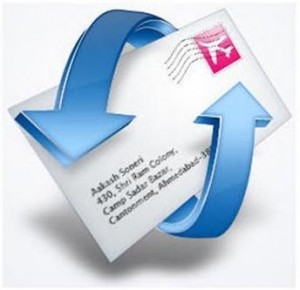8 Email Etiquettes You Should Know
 Email etiquette is often ignored by people in general. It is pretty fine when you are exchanging emails with friends. But when you are running some business, you must acknowledge the etiquette.
Email etiquette is often ignored by people in general. It is pretty fine when you are exchanging emails with friends. But when you are running some business, you must acknowledge the etiquette.
Communicating with clients, customers, or potential clients through email for business owners has to be in an informal way but still with respect.
There are rules for them to manage the messages so the professionalism and politeness are kept.
Do not wait for tomorrow. Check out email etiquettes listed below:
1. Subject
Subject line is very important. Email with no subject can be seen as spam or junk. Writing a subject line will allow the recipients to know what the email is about. Subject is also useful if you want the recipients to read your email first by writing words like [URGENT] as their inbox might be filled with many emails. Please remember that you cannot write subject header with “Hello” or “Hi”. Subject line must be relevant with your messages
2. Header
Do not forget to change the header to correspond with the subject. By giving a new header, the recipients can find a certain document you sent in their inbox folder without having to check your emails one by one.
3. Respect and personal
As mentioned before, email is informal but you still have to show your respect for example by giving a certain greeting. “Dear Mr. Jack” or “Dear Jack” is fine. Make sure you write the name of the recipient so it will be more personal.
4. Tone
Unlike the face-to-face communication where communication is delivered verbally, exchanging emails need a specific tone so the reader can read the text carefully. Tone is crucial as it helps the reader to correctly understand the text.
5. Spelling and grammar
The message you write represents who you are. So make sure you have checked all the spellings and grammar before sending the email. Bear in mind that misspell machine cannot check misused words. You better check the text manually than only rely on the machine.
6. Short message
Do not write a long email. Three or four paragraphs are enough with two or three sentences per paragraph. If you need to discuss a long message, use the phone or simply arrange a meeting.
7. Signature
Signature is totally important. Never forget to put your name below the message. You may also need to add contact information like street address, fax and phone. The signature helps you to show your professionalism.
8. Quick response
Expecting a quick response is okay, but do not insist to have your email responded like 5 minutes after the sending. They must have other things to do than only sit in front of the computer while waiting for an incoming email. It might be different if you have told them about the email that you want to send so they can prepare themselves with email turned on. If you need a quick response, pick the phone so you will get the answer immediately.

